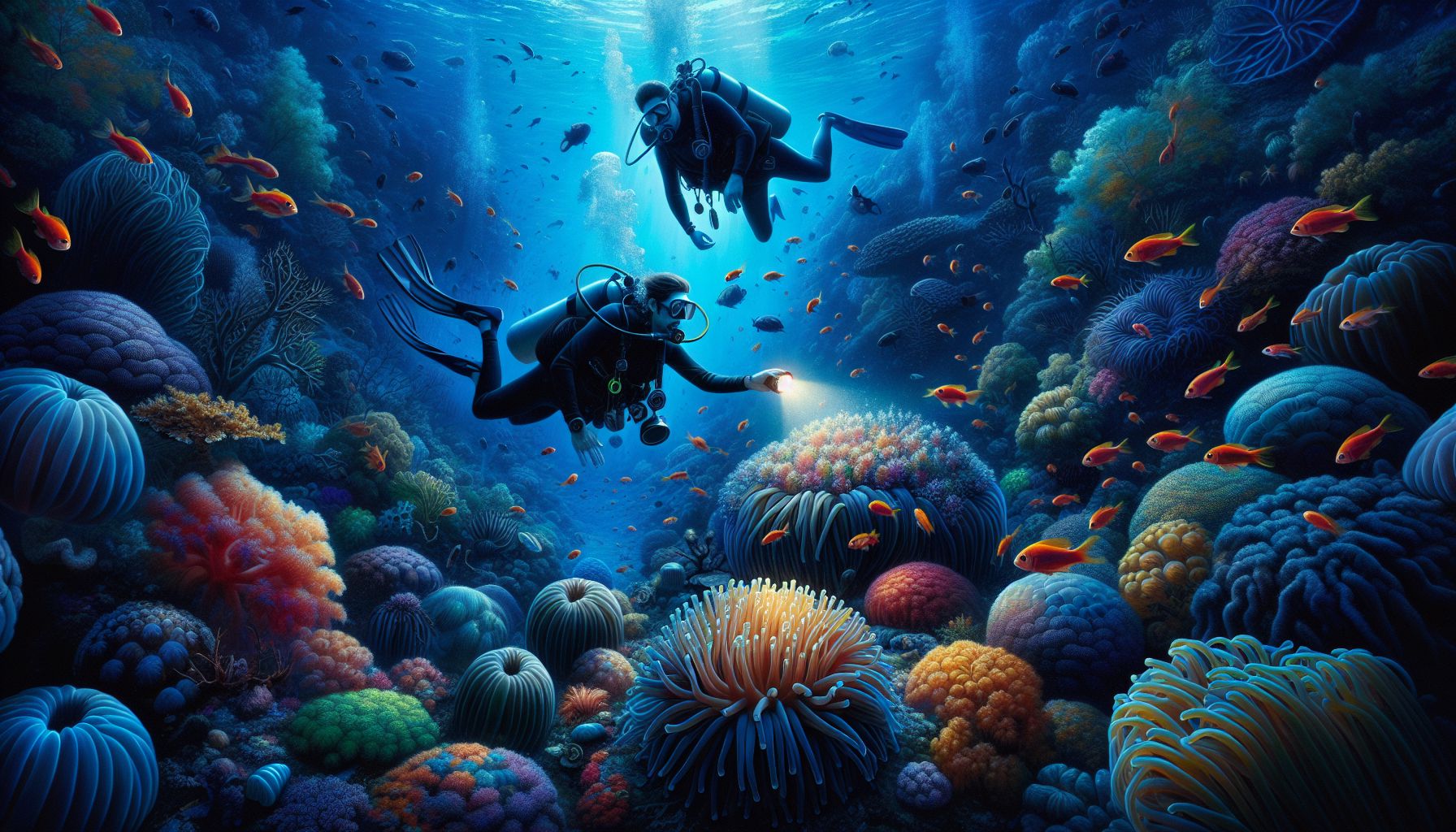Scuba diving is not just a sport or a hobby. For many enthusiasts, it is a gateway to another world—a world full of mystery, vibrant colors, and life forms that seem almost other-worldly. As divers descend beyond the surface of the ocean, they become explorers in an environment that covers more than 70% of our planet, yet remains largely unseen by human eyes. This article delves into the heart of scuba diving, exploring what makes it such a captivating experience and how it intertwines adventure, conservation, and a deeper understanding of our blue planet.
Introduction to Scuba Diving
Scuba diving is a form of underwater diving wherein divers use a self-contained underwater breathing apparatus (scuba) to breathe underwater. This equipment allows divers to explore the underwater realms for extended periods, unlike free-diving or snorkeling where the time underwater is limited by one’s breath-holding capacity.
The Allure of the Deep
The allure of scuba diving lies in its ability to transport individuals into a world that is completely different from the terrestrial one they are used to. The moment a diver submerges, the hustle and bustle of life above water dissipate, replaced by serene silence, only interrupted by the sound of their breathing and the bubbles rising to the surface. With each descent, the diver discovers new landscapes—coral reefs teeming with life, shipwrecks that tell a historical tale, and deep-sea creatures that rarely see the light of day.
Getting Certified
Before you can dive into the depths, proper training and certification are essential. Organizations such as PADI (Professional Association of Diving Instructors) and NAUI (National Association of Underwater Instructors) offer a range of courses from beginner to advanced levels. These courses cover essential skills such as buoyancy control, underwater navigation, and how to deal with potential emergencies underwater.
Equipment Essentials
Scuba diving equipment is designed to make underwater exploration possible and includes items such as:
- Diving Mask: Enhances underwater vision.
- Scuba Tank: Holds the breathing gas, usually compressed air or enriched air nitrox.
- Regulator: Delivers breathing gas from the tank to the diver at ambient pressure.
- Buoyancy Control Device (BCD): Helps the diver maintain neutral buoyancy.
- Dive Computer: Monitors depth, bottom time, and decompression limits.
- Exposure Protection: Wetsuits or drysuits protect against the cold and environmental hazards.
- Fins: Provide efficient propulsion underwater.
The Experience of Scuba Diving
Diving into the ocean is like entering a different universe. The weightlessness experienced underwater is akin to being in space, providing a sense of freedom and agility. Colors change as depth increases, with reds and oranges disappearing first, transforming the underwater landscape as divers descend.
Marine Life Encounters
One of the most thrilling aspects of scuba diving is the opportunity to encounter marine life up close. From the tiniest nudibranchs to the majestic whale sharks, the diversity is staggering. Observing these creatures in their natural habitat fosters a connection and a responsibility to protect these fragile ecosystems.
Exploring Wrecks and Reefs
The underwater world is sprinkled with historical artifacts and natural wonders. Shipwrecks become artificial reefs, creating habitats for marine life and providing a glimpse into the past. Natural reefs, on the other hand, are bustling cities of the sea, each organism playing a role in the reef’s health and sustainability.
Diving In Different Environments
Scuba diving is a global venture with varying experiences depending on the location. From the crystalline waters of the Caribbean to the kelp forests of the Pacific, each site offers unique conditions and ecosystems.
- Tropical Diving: Warm waters and vibrant coral reefs.
- Cold-Water Diving: Challenging but rewarding, with sites like kelp forests and ice diving under frozen lakes.
- Cave Diving: Exploration of underwater caves requires specialized training and equipment.
- Altitude Diving: Diving in high-altitude lakes that affect pressure and dive profiles.
Conservation and Responsible Diving
As scouts of the sea, divers play a vital role in conservation. They not only observe but actively engage in protecting the underwater world. Responsible diving practices and supporting conservation efforts are crucial to ensuring that these environments continue to thrive for future generations.
Ecotourism
Scuba diving can promote ecotourism, where the focus is on sustainable travel that conserves the environment and improves the well-being of the local people. By choosing responsible dive operators and being eco-conscious divers, we contribute positively to the regions we visit.
Initiatives and Organizations
Organizations like Project AWARE (Project AWARE) work with divers and communities to combat challenges facing underwater habitats. They focus on issues such as marine debris, overfishing, and the protection of endangered species.
The Health Benefits of Scuba Diving
Aside from the excitement, scuba diving also offers several health benefits:
- Physical Fitness: Swimming against currents and managing gear can improve overall strength and endurance.
- Mental Well-being: The calming effect of being underwater can alleviate stress and anxiety.
- Emotional Connection: The sense of awe and wonder promotes happiness and emotional satisfaction.
Advanced Diving Opportunities
For those who wish to take their diving to the next level, numerous advanced opportunities exist:
- Technical Diving: Requires further training to manage complex equipment and handle mixed gases for deeper dives.
- Underwater Photography and Videography: Capturing the beauty of the underwater world through specialized skills and equipment.
- Marine Biology and Research Diving: Contributing to scientific knowledge by studying marine ecosystems first-hand.
Final Thoughts
Scuba diving is a multifaceted activity that combines adventure, science, and artistry. Every dive is a unique experience, a chance to disconnect from our terrestrial constraints and bond with the natural world in a way that few other activities can offer.
Whether you are drawn to the underwater realm for the adventure, the wildlife encounters, or the chance to witness history preserved at the bottom of the sea, scuba diving provides an endless array of experiences. It is a pursuit that not only opens our eyes to the wonders of the marine environment but also inspires a commitment to protect this invaluable and fragile world beneath the waves.
